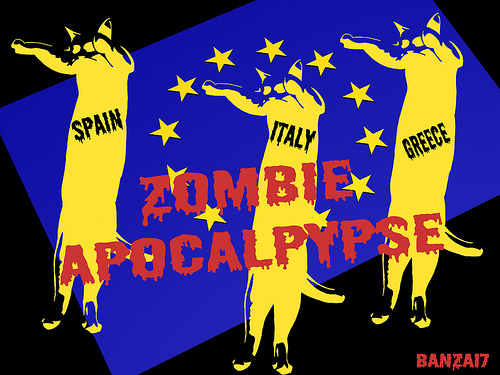Slovenia joined the Eurozone in 2007, went on a borrowing binge that blind bond buyers eagerly made possible, dousing some of its two million people with riches, creating a real estate bubble that has since burst, and driving up its external debt by 110%. And in October, it may go bankrupt, admitted Prime Minister Janez Jansa. Because borrowing binges can last only so long if you can’t print your own money. The sixth Eurozone country, of seventeen, to need a bailout. But it’s just a speck, compared to Spain, which will strain the bailout funds, and Italy, which is too large to get bailed out. The other option is the European Central Bank. Its printing press—the one it is not supposed to have—could easily bail out the once blind but now seeing bondholders. As in all bailouts, workers and taxpayers would get a haircut. And in Germany, the debate itself may tear up the Eurozone—just as its economy is tanking.
New car sales in Germany had been holding up well through June—a miracle in face of the fiasco playing out in the Eurozone’s auto industry. But they caved in July; and instead of miraculously recovering in August, they caved again: down 4.7% from August 2011 and down 8.6% from July. Ominously, sales of medium-heavy and heavy trucks, a thermometer of the business investment climate, fell off a cliff: -18.8% for trucks over 12 metric tons, -15.1% for trucks over 20 tons, and -9.4% for tractors (now down 5% for the year!).
Retail sales, which had been on a roll through May, stalled in June, and skidded in July. Early indications are even worse for August: retailers’ negative sentiment worsened for the fourth month in a row. They suffered from a nasty margin squeeze, given the dual pressures of wholesale price inflation that “increased sharply,” and heavy discounting, as Germans struggle to make ends meet [read…. The “Pauperization of Europe”].
And manufacturing, the vaunted engine of the German economy, after a rout in July, was hit by another “deterioration in business conditions” in August. It recorded the fifth month in a row of job losses. And export orders plummeted at the “steepest rate since April 2009.”
More…



